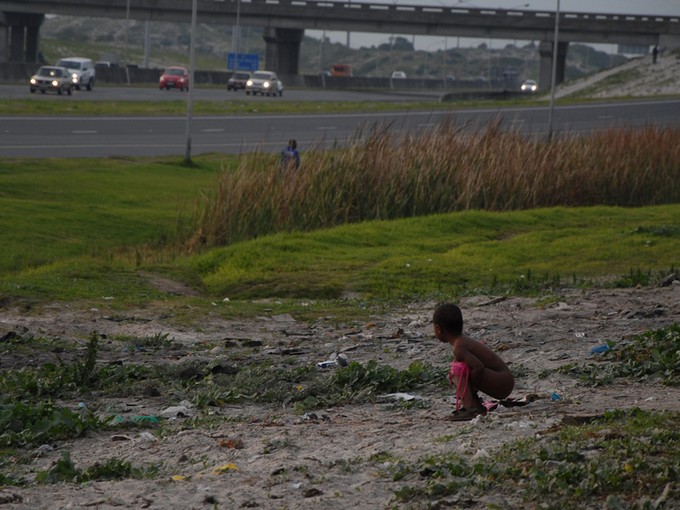South Africa has a draft sanitation policy, at last
But where are the timeframes?
This week, the body of another young woman from Khayelitsha, Sinoxolo Mafevuka, was found inside a communal toilet. The indignity and life threatening conditions of accessing a toilet – the most basic of human needs – is one of the deepest and most shameful legacies of apartheid.
A minority of informal settlement residents in South Africa have access to a decent toilet. The vast majority are still forced to use temporary, undignified facilities such as chemical toilets, container toilets, porta potties, buckets, and inadequate, unsafe communal toilets far from their homes. Many have no facilities at all.
On 12 February 2016, the Minister of Water and Sanitation, Nomvula Mokonyane, gazetted a Draft National Sanitation Policy, open for comments until 14 March. To date there has been no single, substantive policy regulating sanitation provision in South Africa, leaving implementation haphazard and without basic standards.
The legal and policy framework for basic sanitation in South Africa has evolved over the past two decades. While the right to basic sanitation is not openly provided for in the Constitution, it intersects with a number of clauses in the Bill of Rights including the right to housing.
Policy documents adopted over the years also recognise sanitation as a basic right. These include the White Paper on Water Supply and Sanitation (1994), The White Paper on National Water Policy of South Africa (1997) and the White Paper on Basic Household Sanitation (2001). The Water Services Act of 1997 – the main legislation relating to water and sanitation in South Africa – explicitly refers to the “right of access to basic water and basic sanitation” and this is subject to the principle of progressive realisation.
In 2012 the Department of Human Settlements reviewed these policies and developed the 2012 Draft National Sanitation Policy (2012 Policy). The 2012 policy was not gazetted and has only now, four years later, been developed into the draft national policy introduced in 2016.
The 2016 draft policy includes policy positions on three main areas – equity, institutions and sustainability. The draft policy has its limits and requires input from many organisations and people to make sure that the final document that is adopted is appropriate and effective.
However, there are important aspects of the draft policy that are worth mentioning. First, the policy commits the Minister to developing norms and standards for sanitation in informal settlements. Second, the policy begins to shift away from treating informal settlements as temporary, emergency environments, to dealing with the reality that they are long standing, established communities that require permanent infrastructure and long-term planning.
Up to now the policy gap has meant that many municipalities use the Emergency Housing Programme to determine levels of sanitation provision in non-emergency circumstances and provide temporary services on an ad-hoc, often chaotic, basis.
The SJC has been campaigning for improved sanitation in informal settlements in Khayelitsha, Cape Town, since 2009. A lack of basic standards and long-term planning have been some of the biggest obstacles to improving access to basic sanitation in informal settlements. Our position has always been that in order to realise the right to sanitation, informal settlements cannot be treated as temporary or transitory when so many people have lived their entire lives in these communities.
In Cape Town for example, the City’s Informal Settlements Matrix shows that about two-thirds of informal settlements are older than 15 years. Around a quarter are older than 20 years. However, 73% of all toilet technologies provided to informal settlements are temporary services meant for emergency environments, such as porta pottis, bucket, chemical and container toilets. These technologies are undignified and unsafe. They are also outsourced and are very expensive since they have such high operating costs. Providing temporary toilets with no long term plan to deal with the crisis of sanitation is unreasonable, unjust, and unsustainable.
One of the notable gaps with this draft policy is that there are no timeframes. Timeframes are important for accountability especially in the many instances where the Minister promises that she will develop norms and standards.
In the coming weeks the SJC will publish a full and detailed submission on the draft policy.
Views expressed are not necessarily GroundUp’s.
Support independent journalism
Donate using Payfast

Don't miss out on the latest news
We respect your privacy, and promise we won't spam you.
Next: Protesters condemn “apartheid-style” harassment of student activist
Previous: Province agrees to discuss future of Tafelberg School
© 2016 GroundUp. 
This article is licensed under a Creative Commons Attribution-NoDerivatives 4.0 International License.

